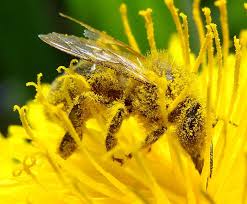
Spring is Here!
Believe it or not, the first day of spring comes this Friday, March 20th, 2015. This may be hard to imagine as there’s snow in the New York City forecast for that exact day, but we promise you: SPRING IS COMING. Eventually. We’re pretty sure.
Spring has tons of good points: total lack of snow, visible grass, warm weather, pretty flowers, lack of snow, longer days, more outdoor activities, and, just in case we haven’t mentioned it, lack of snow.
Sadly, with the good comes a tiny little sliver of bad – in this case, springtime allergies. Spring allergies affect over 35 million people in the U.S. each year and are usually a result of excess tree and grass pollen in the air.
Pollen and other springtime allergens cause unpleasant sneezing, coughing, sniffling, red eyes, and fatigue. Constant allergy symptoms are certainly unpleasant, but there are a number of easy tactics you can try that may help minimize your spring allergies.
Suggestions for alleviating common springtime allergies:
- Check the National Allergy Bureau Pollen and Mold Report to see what the day has in store. If the day is a total pollenfest, try to stay inside as much as you can.
- Dry your clothes inside. While putting them on an outdoor clothesline might make them smell fresh, it will also cover them with pollen.
- Close your windows during the day. Typically pollen counts are highest from late morning to mid-afternoon.
- Don’t track pollen inside the house. If your shoes or clothes are covered in pollen, keep them outside or wash them – don’t wear them around your rooms, especially not your bedroom.
- Take showers. Presumably you’re already doing this. One method of reducing pollen in your house is to shower in the evening before you go to bed – this will keep the pollen that’s accumulated on you through the day from spreading to your pillow and bed.
- Vacuum your house frequently. Pollen will collect on all carpets & flat surfaces. To avoid irritation from kicked up pollen, try wearing a mask when you vacuum.
- If you have filters on fans or air conditioning units, clean or change them regularly.
- Try nasal irrigation. Let’s face it, nasal irrigation is pretty gross, but it can help allergy sufferers. Here’s a handy guide to nasal irrigation.
- On bad days, close your windows in your car and set the air to recirculate.
- Drink more water. Hydration helps with everything and managing allergies is no exception.
- Boost your Vitamin C intake. Vitamin C serves as a natural antihistamine.
- Fill your sink up with hot water, cover your head with a towel and put your face near the water. Not in the water, as that would hurt. The steam emitted should help ease congestion and allergy suffering.
- Smile a lot. This won’t do a thing for your spring allergies, but at least you’ll be cheerful while your nose is running.
If you’re suffering badly, consider using over the counter eye drops, antihistamines, and/or decongestants. However, if you’ve tried everything and nothing helps, certainly consult your doctor – there are plenty of safe non-drowsy allergy medications available.
